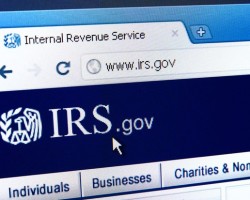
Abstract
Lawmakers, prosecutors, homeowners, policymakers, investors, news media, scholars and other commentators have examined, litigated, and reported on numerous aspects of the 2008 Financial Crisis and the role that residential mortgage-backed securities (RMBS) played in that crisis. Big banks create RMBS by pooling mortgage notes into trusts and selling interests in those trusts as RMBS. Absent from prior work related to RMBS securitization is the tax treatment of RMBS mortgage-note pools and the critical role tax enforcement should play in ensuring the integrity of mortgage-note securitization.
This Article is the first to examine federal tax aspects of RMBS mortgage-note pools formed in the years leading up to the Financial Crisis. Tax law provides favorable tax treatment to real estate mortgage investment conduits (REMICs), a type of RMBS pool. To qualify for the favorable REMIC tax treatment, an RMBS pool must meet several requirements relating to the ownership and quality of mortgage notes. The practices of loan originators and RMBS organizers in the years leading up to the Financial Crisis jeopardize the tax classification of a significant portion of the RMBS pools. Nonetheless, the IRS appears to believe that there is no legal or policy basis for challenging REMIC classification of even the worst RMBS pools. This Article takes issue with the IRS’s inaction and presents both the legal and policy grounds for enforcing tax law by challenging the REMIC classification of at least the worst types of RMBS pools. The Article urges the IRS to take action, recognizing that its failure to police these arrangements prior to the Financial Crisis is partly to blame for the economic meltdown in 2008. The IRS’s continued failure to police RMBS arrangements provides latitude to industry participants, which facilitates future economic catastrophes. Even without the IRS taking action, private parties can rely upon the blueprint set forth in the Article to bring qui tam or whistleblower claims to accomplish the purposes of the REMIC rules and obtain the beneficial results that would occur if the IRS enforced the REMIC rules.
© 2010-19 FORECLOSURE FRAUD | by DinSFLA. All rights reserved.




One Response to “REMIC Tax Enforcement as Financial-Market Regulator – Reiss & Borden”
Trackbacks/Pingbacks
[…] REMIC Tax Enforcement as Financial-Market Regulator – Reiss & Borden StopForeclosureFraud (Deontos) […]